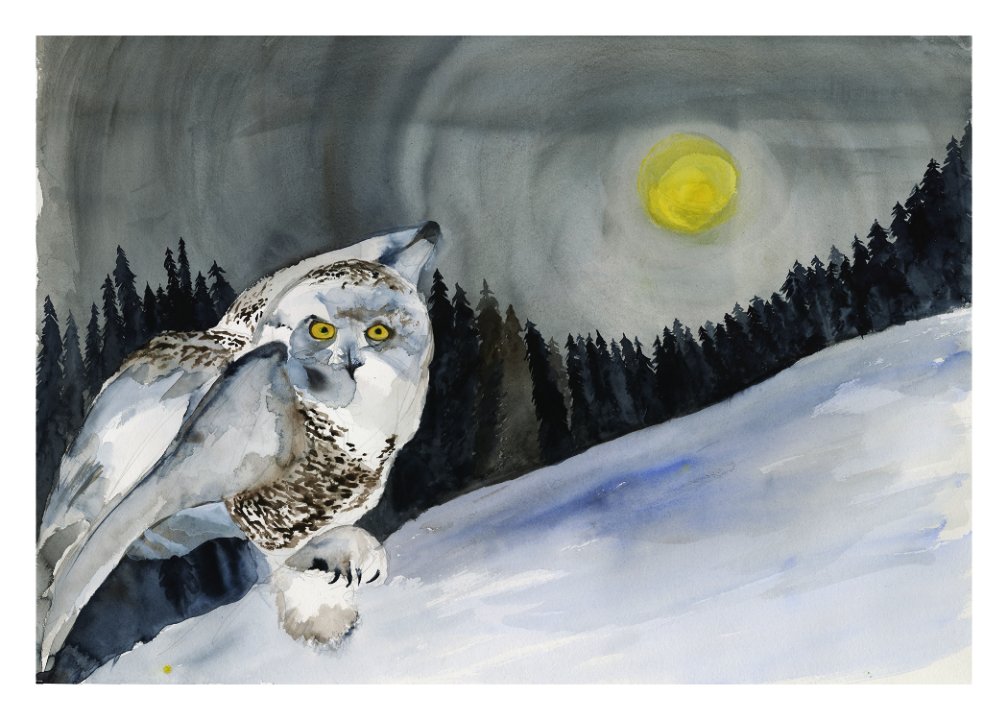A Pause For Beauty
One ought every day at least to hear a little song, read a good poem, see a fine picture,
and if it were possible, to speak a few reasonable words.
- Goethe
. . .
Eventually, all things merge into one,
and a river runs through it.
My father was very sure about certain matters pertaining to the universe.
To him, all good things – trout as well as eternal salvation – come by grace and grace comes by art
and art does not come easily.
- Norman Maclean, A River Runs Through It
Now nearly all those I loved and did not understand when I was young are dead, but I still reach out to them.
Of course, now I am too old to be much of a fisherman, and now of course I usually fish the big waters alone, although some friends think I shouldn’t. Like many fly fishermen in western Montana where the summer days are almost Arctic in length, I often do not start fishing until the cool of the evening. Then in the Arctic half-light of the canyon, all existence fades to a being with my soul and memories and the sounds of the Big Blackfoot River and a four-count rhythm and the hope that a fish will rise.
Eventually, all things merge into one, and a river runs through it. The river was cut by the world’s great flood and runs over rocks from the basement of time. On some of the rocks are timeless raindrops. Under the rocks are the words, and some the words are theirs.
I am haunted by waters.
- Norman Maclean, A River Runs Through It
If, as many believe, Herman Melville’s opening for Moby Dick is the greatest first page of any novel ever written, then my nomination for the greatest closing page is that of Norman Maclean’s A River Runs Through It (above).
Maclean’s book suggests that we find peace through acceptance, and through making a big place in our lives for natural beauty. Acceptance of the things we wanted to accomplish, but didn’t. Acceptance of all of the things we wanted out of life, but didn’t receive. The people we loved but did not understand. The merging of memories with all existence with our souls.
Time marches on; we are but an insignificant spec passing through the ageless river canyon. Eventually all things merge into one.
For those who may not have read it, or just want to revisit the beginning of this extraordinary work, here’s the opening paragraph to Moby Dick:
Call me Ishmael. Some years ago—never mind how long precisely—having little or no money in my purse, and nothing particular to interest me on shore, I thought I would sail about a little and see the watery part of the world. It is a way I have of driving off the spleen and regulating the circulation. Whenever I find myself growing grim about the mouth; whenever it is a damp, drizzly November in my soul; whenever I find myself involuntarily pausing before coffin warehouses, and bringing up the rear of every funeral I meet; and especially whenever my hypos get such an upper hand of me, that it requires a strong moral principle to prevent me from deliberately stepping into the street, and methodically knocking people’s hats off—then, I account it high time to get to sea as soon as I can. This is my substitute for pistol and ball. With a philosophical flourish Cato throws himself upon his sword; I quietly take to the ship. There is nothing surprising in this. If they but knew it, almost all men in their degree, some time or other, cherish very nearly the same feelings towards the ocean with me.
Reflecting on the messages of the two books in tandem, we break out of, through, our melancholy by embracing our own personal adventure and taking to the metaphorical oceans of the world in search of our own private Moby Dick. At the end of all of our voyages we return home, changed, having found peace within through an acceptance of ourselves, including our unfulfilled ambitions, and by embracing the timeless beauty that surrounds. It’s a lot bigger than we are.
. . .
Journal question:
What stands between you, the timeless beauty that surrounds, and the peace it offers?
P.S. For those creative outsiders familiar with the sting of rejection, Norman Maclean’s masterpiece, and eventual bestseller, was turned down by all of the major publishing houses. After his book achieved great success, an editor at Alfred A. Knopf, one of the publishers that turned him down, wrote Maclean asking to publish his next book.
Entire selection of notecards here.
Travels With Princess Ada Update.
I’m traveling around the South visiting Heron Dance readers.
Sign Up Here For The New Heron Dance E-Journal
Creativity As A Way Of Life
Latest Post
Current Month Pause For Beauty Posts
October Pause For Beauty Posts
Free shipping, no sales tax on all Heron Dance orders including original paintings, prints and posters.





